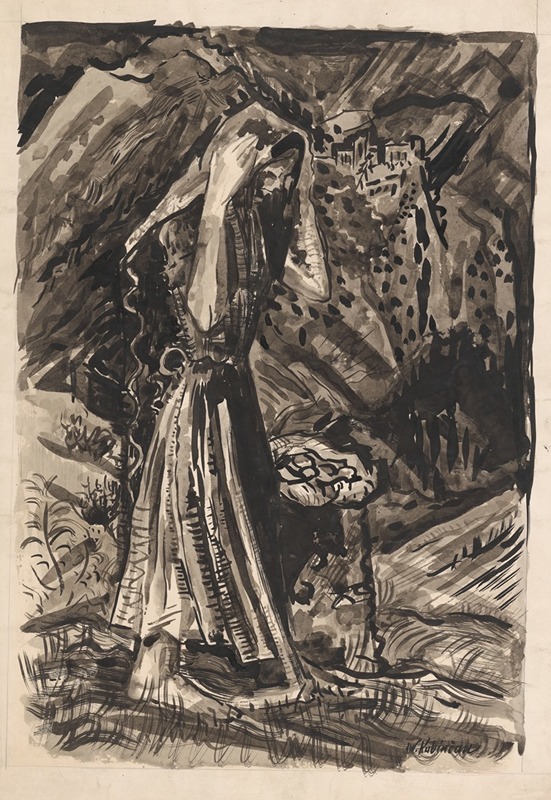
Standing Woman with a Bag of Potatoes
A hand-painted replica of Arnold Peter Weisz-Kubínčan’s masterpiece Standing Woman with a Bag of Potatoes, meticulously crafted by professional artists to capture the true essence of the original. Each piece is created with museum-quality canvas and rare mineral pigments, carefully painted by experienced artists with delicate brushstrokes and rich, layered colors to perfectly recreate the texture of the original artwork. Unlike machine-printed reproductions, this hand-painted version brings the painting to life, infused with the artist’s emotions and skill in every stroke. Whether for personal collection or home decoration, it instantly elevates the artistic atmosphere of any space.
Arnold Peter Weisz-Kubínčan was a Slovak painter and graphic artist, born on March 3, 1898, in Dolný Kubín, Slovakia. He is known for his contributions to modern Slovak art, particularly in the early to mid-20th century. Weisz-Kubínčan's work is characterized by its expressive style and often reflects the socio-political context of his time.
One of his notable works is "Standing Woman with a Bag of Potatoes." This painting exemplifies Weisz-Kubínčan's ability to capture the essence of everyday life and the struggles of ordinary people. The artwork portrays a woman standing with a bag of potatoes, a scene that may seem mundane but is imbued with deeper significance through the artist's treatment of the subject.
The painting is notable for its use of color and form. Weisz-Kubínčan employs a muted palette, which adds to the somber and reflective mood of the piece. The woman's figure is rendered with a certain solidity and weight, emphasizing the physical and emotional burden she carries. The bag of potatoes, a humble and essential food item, symbolizes sustenance and the basic needs of life, highlighting themes of survival and resilience.
Weisz-Kubínčan's style in this painting can be linked to the broader movements of Expressionism and Social Realism, which were prevalent in European art during the early 20th century. These movements often focused on depicting the human condition and the realities of working-class life, using art as a means to comment on social issues.
The historical context of Weisz-Kubínčan's life and work is also significant. He lived through a tumultuous period in European history, including World War I, the interwar period, and the rise of totalitarian regimes. These events undoubtedly influenced his artistic vision and the themes he chose to explore in his work.
"Standing Woman with a Bag of Potatoes" is a testament to Weisz-Kubínčan's skill as an artist and his ability to convey profound meaning through seemingly simple subjects. The painting invites viewers to consider the dignity and strength of ordinary people, as well as the broader social and economic conditions that shape their lives.
Arnold Peter Weisz-Kubínčan's contributions to Slovak art were cut short by his untimely death in 1944. Despite his relatively brief career, his work remains an important part of Slovakia's cultural heritage. His paintings, including "Standing Woman with a Bag of Potatoes," continue to be studied and appreciated for their artistic and historical significance.
In summary, "Standing Woman with a Bag of Potatoes" by Arnold Peter Weisz-Kubínčan is a poignant and evocative work that captures the essence of everyday life and the resilience of the human spirit. Through his expressive style and thoughtful subject matter, Weisz-Kubínčan offers a window into the lives of ordinary people and the broader social context of his time.


















